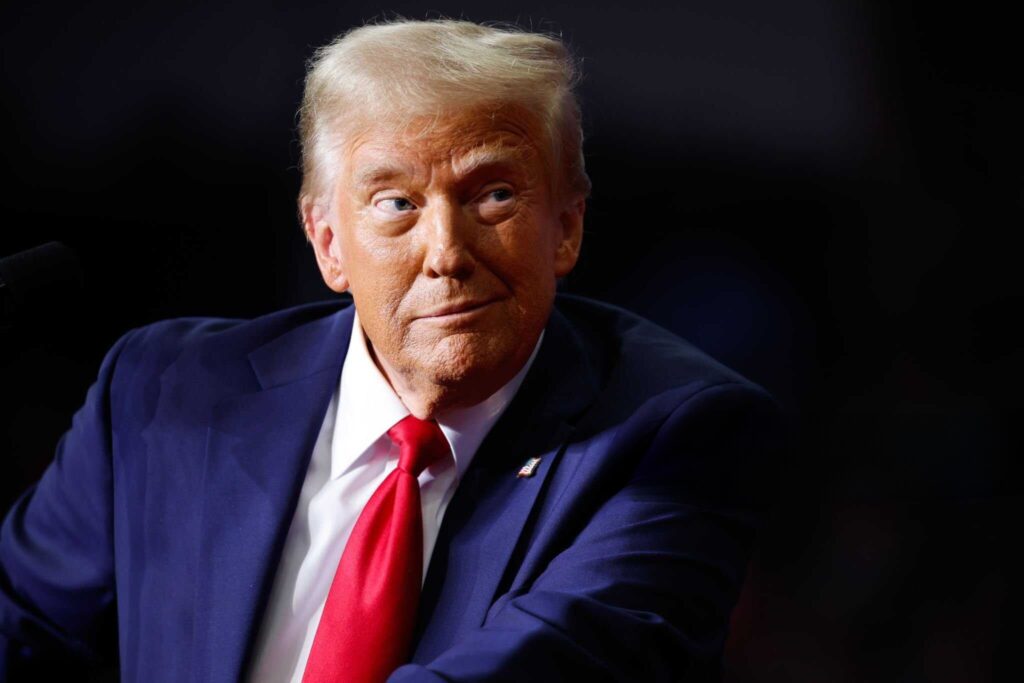Former U.S. President Donald Trump has announced a new 25% tariff on all imported vehicles and car parts entering the United States. The tariffs on vehicles will take effect on April 2, while duties on parts will begin in May or later. Trump argued that the move would encourage car manufacturers to invest in the U.S. and create thousands of jobs in the auto industry.
Auto Industry Faces Major Shakeup
The new tariffs target the global car market, affecting countries that supply vehicles to the U.S. Last year, the U.S. imported eight million cars worth $240 billion. These imports made up nearly half of all domestic car sales. The top exporters to the U.S. included Mexico, South Korea, Japan, Canada, and Germany.
Many American automakers have manufacturing plants in Canada and Mexico under the U.S.-Mexico-Canada Agreement (USMCA). These facilities rely on the free movement of auto parts across borders. The tariffs could disrupt supply chains and force companies to rethink their production strategies.
Tariffs on Car Parts Could Raise Costs
The tariffs will also apply to car parts, which are essential for assembling vehicles in U.S. plants. The White House confirmed that Canada and Mexico will receive temporary exemptions while customs officials develop a system to evaluate part-specific duties. Billions of dollars in auto parts move between these countries daily, and any delay could impact production.
Following the announcement, General Motors’ stock dropped by 3%. Other automakers, including Ford and Tesla, also saw declines in share prices. Trump dismissed concerns, stating, “If you build your car in the U.S., there is no tariff.” He insisted that the tariffs are final and non-negotiable.
Japan, UK, and Canada React
Japanese Prime Minister Shigeru Ishiba expressed strong concerns. Japan is the world’s second-largest car exporter, home to Toyota, Honda, and Nissan. The Tokyo stock market reacted negatively, with shares in Japanese carmakers falling. Ishiba said his government is considering “all options” in response to the tariffs.
The UK government also voiced concern. British automakers, particularly Jaguar Land Rover, sold over 116,000 vehicles in the U.S. last year. The UK is actively seeking a trade deal with the U.S. to avoid damaging its car exports.
Canadian Prime Minister Mark Carney called Trump’s tariffs “a direct attack” on Canada’s economy. He vowed to take necessary steps to protect Canadian jobs, saying, “This will hurt, but we will stand united and come out stronger.”
European Commission President Ursula von der Leyen criticized the decision, warning that the EU would evaluate countermeasures. “Tariffs are bad for business and consumers in both the EU and U.S.,” she said. Trump responded with a warning that he could impose “much higher” tariffs if the EU and Canada retaliate.
Impact on Consumers and Car Prices
Economists estimate that the tariffs could raise the price of an imported vehicle by up to $10,000, depending on the model and country of origin. American-made cars, which also rely on foreign parts, could see price increases as well. The cost of repairs and maintenance may also rise as tariffs apply to imported replacement parts.
A tariff is a tax that importers must pay when bringing goods into a country. Trump has long supported tariffs to protect American industries and boost domestic production. However, critics argue that tariffs ultimately lead to higher prices for consumers.
Hyundai Invests Billions in U.S. Amid Tariff Uncertainty
Despite concerns, some automakers are adjusting their plans. South Korea’s Hyundai announced a $21 billion investment in the U.S., including a new steel plant in Louisiana. Trump praised the move as proof that tariffs encourage domestic investment. “Companies are finally doing what they should have done decades ago,” he said.
Industry Reactions Remain Divided
The United Auto Workers (UAW) union, which has often clashed with Trump, supported the decision. UAW leader Shawn Fain called it a necessary step to protect American workers. “He’s stepping up to fix a trade disaster that’s harmed working-class communities for decades,” Fain said.
Meanwhile, some auto industry leaders remain skeptical. Matt Blunt, president of the American Automotive Policy Council, acknowledged Trump’s goal but cautioned against supply chain disruptions. “We support increasing U.S. production, but we need stable policies that don’t create uncertainty for businesses,” Blunt stated.
Uncertain Future for Global Trade Relations
The tariffs come as part of a broader strategy to address trade imbalances. Trump has frequently criticized countries like China and Germany for what he calls unfair trade practices. However, trade analysts warn that escalating tariffs could trigger retaliation from other nations, leading to a full-scale trade war.
As tensions rise, world leaders are watching closely to see how these tariffs will reshape global trade. The long-term effects on the auto industry remain uncertain. Some companies may choose to shift production to the U.S., while others might pass higher costs onto consumers.


